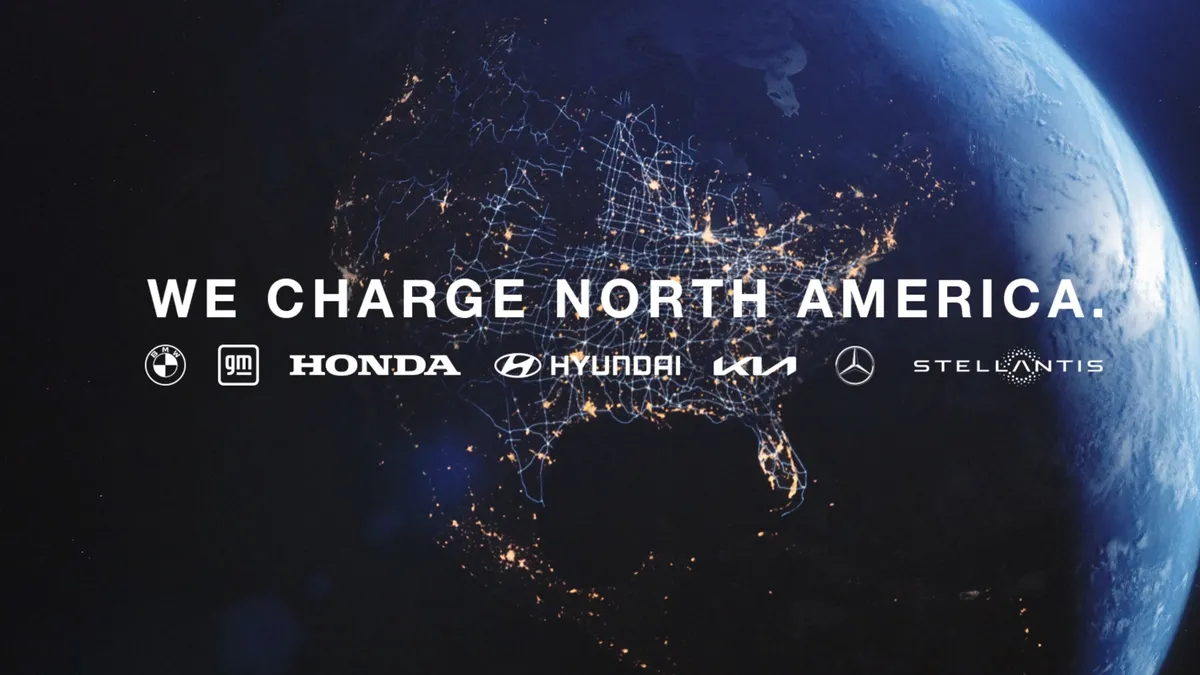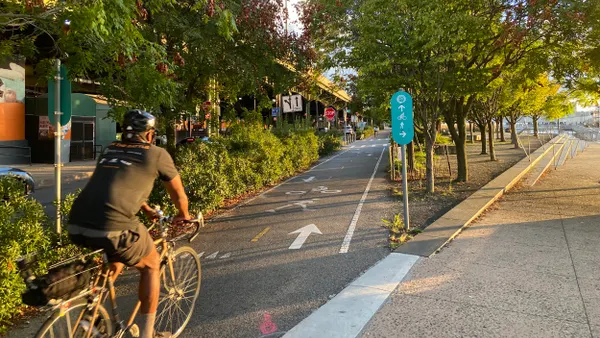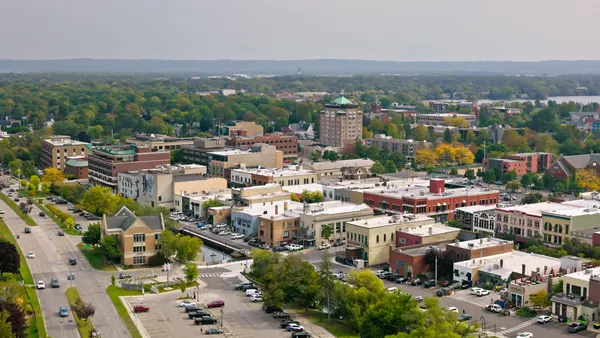Dive Brief:
- Seven leading automakers' electric vehicle charging joint venture, Ionna, has received regulatory approval to begin operations, the company announced in a press release Friday.
- The joint venture partners — BMW, General Motors, Honda, Hyundai, Kia, Mercedes-Benz and Stellantis — plan to install a minimum of 30,000 high-powered EV chargers in strategic locations in North America. The first U.S. stations will open this year, followed by Canada.
- Each charging location will feature multiple high-powered chargers, allowing drivers to travel longer distances. Ionna also plans to offer plug-and-charge technology to allow drivers to pay for charging sessions without needing an app or credit card.
Dive Insight:
The Ionna charging network aims to address a lack of convenient charging options, which is a significant barrier to widespread EV adoption.
The network will be accessible to drivers of EVs equipped with Tesla’s North America Charging Standard or Combined Charging System ports. The compatibility with the NACS port comes after several major automakers announced plans to add it to future vehicles starting in 2025. By offering the CCS plug, Ionna can access $7.5 billion in federal funding under the 2021 bipartisan infrastructure law to expand EV charging infrastructure in the U.S.
The push for growing access to convenient charging comes as several automakers solidify their electrification strategies. Although some automakers have scaled back their EV rollouts due to lower-than-expected demand at the end of 2023, many are still betting on the market to grow long-term.
The charging sites will also have other perks, according to the press release:
- The charging sites will have amenities such as restrooms, food service and retail operations nearby or within the same complex.
- Charging network functions and services — such as navigation, route planning, payment processing and energy management — will be accessible via participating automakers' vehicle infotainment units.
- Ionna added the company intends to power the charging stations with renewable energy.
Last June, the National Renewable Energy Laboratory estimated that the U.S. would need 182,000 publicly accessible DC fast chargers to create a large enough network to support 42 million EVs. According to the U.S. Department of Energy, the number of public and private EV charging sites almost doubled from 87,352 in the fourth quarter of 2019 to 161,562 in the first quarter of 2023.












